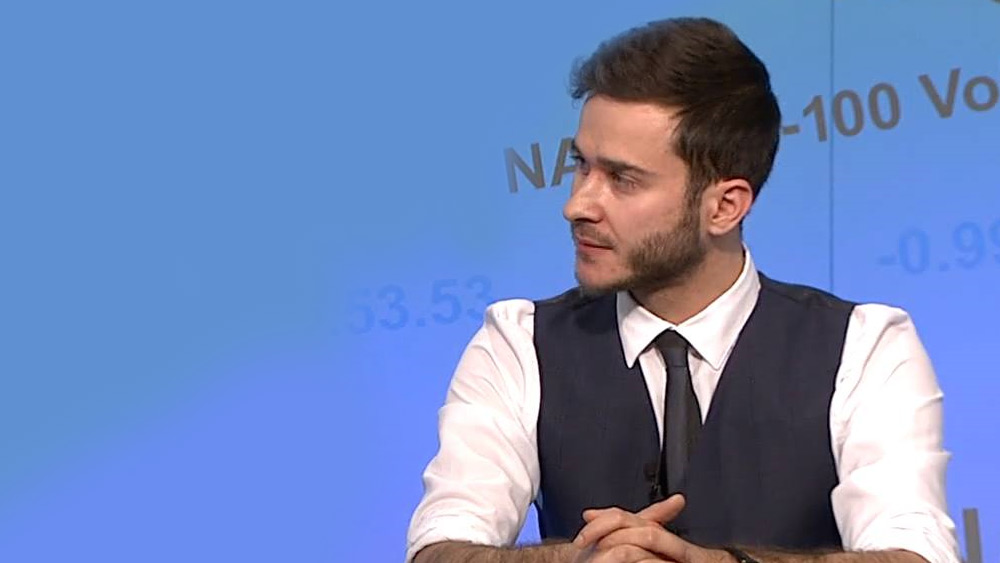
Source: DeltaStock
Reading time: 4 minutes
“Robinhood will only benefit from higher market volatility as its trading volumes are expected to rise due to its main source of income being the selling of client orders to market makers. A less volatile market, on the other hand, might present a problem because it risks boring speculators.”
Ivaylo Chaushev, chief financial analyst of DeltaStock
In an interview with Bloomberg TV Bulgaria, Chaushev commented that a rise in the U.S. interest rates would also benefit the popular trading platform since it also offers trading on margin, and the calculation of the cost of margin trading is dependent on the current interest rates. In other words, if the Fed raises the interest rates, the company will likely earn more.
The conversation also touched on the fears that millions of retail investors that are currently using the company’s services will not stay for long. Chaushev, however, was quick to disperse these assumptions.
“Most Robinhood clients have been investing and speculating on the market for a relatively short period of time and have, so far, seen only the bullish side of it. It remains to be seen what will happen when a recession starts knocking on the door and more persistent declines follow,” further commented the DeltaStock analyst. “Will clients run away? Most likely not,” he added.
That being said, Chaushev doesn’t think that Robinhood is very professional when it comes to how it chooses to disclose information to its clients. For instance, he argues, there was the $70 million fine for presenting falsified or misleading information to its margin trading clients, in addition to other violations relating to their customer onboarding processes. In fact, the most recent SEC fine was issued in 2020.
“In addition, they also had a pretty serious two-day platform shutdown when market volatility was extremely high, which is somewhat unacceptable behaviour for a broker – halting trading for several days during such volatility. I think they’re going to continue to be exposed to some serious scrutiny from regulators as a result.”
Ivaylo Chaushev
The question now remains whether the regulator will start to scrutinise Robinhood more closely and tightly regulate the Payment For Order Flow model which it currently uses.
All that aside for a moment, the analyst is of the opinion that the Robinhood business model changed the U.S. trading landscape almost overnight. The secret to their growth, he says, was the introduction of zero commission trading. The fact that the company was among the first on the market to offer this service turned into a major advantage which, in turn, helped them grow exceptionally fast. The intuitive and gamified interface of the platform also helped a lot, as did the COVID-19 lockdowns which further popularised Robinhood’s business model.
A business model, however, that is based on the selling of client orders – a practice not particularly welcomed in the industry as it leads to a loss of transparency. The expert argues that the broker could prioritise the market maker who pays more per client order instead of the market maker who quotes better order execution prices. Chaushev also mentioned that this practice is, as of the writing of this article, banned in the United Kingdom.
Shifting the conversation towards the company’s IPO, which is among the most eagerly anticipated IPOs for this year, the DeltaStock expert had to say the following:
“It is still not certain how many shares will be offered and at what price, but it is generally known that the company plans to reserve between 20% to 30% of its shares for its clients. This is actually a pretty good initiative by Robinhood as retail investors are generally unable to pitch in before the IPOs start trading on the market. This also presents its own share of risks because, once listed, the IPO could spark lots of volatility due to the retail investors’ ability to instantly sell the shares they’ve just bought prior to the company going public”.
Ivaylo Chaushev
Another risk to keep in mind, concludes the analyst, is that Dogecoin trading constitutes 1/3 of Robinhood’s crypto profits for this year’s first quarter and deems that the so-called “Doge” currency will, sooner or later, lose its lustre and lead to a decline in the platform’s trading volumes.
***
Disclaimer: This article is for information purposes only and aims to share chief analyst Ivaylo Chaushev’s personal opinion on the matter. The information herein provided does not constitute a buy or sell recommendation for any of the financial instruments herein analysed.
Deltastock AD assumes no responsibility for errors, inaccuracies or omissions in this article, nor shall it be liable for damages arising out of any person’s reliance upon the information on this page. Deltastock AD shall not be liable for any special, indirect, incidental, or consequential damages, including without limitation, losses or unrealised gains that may result.